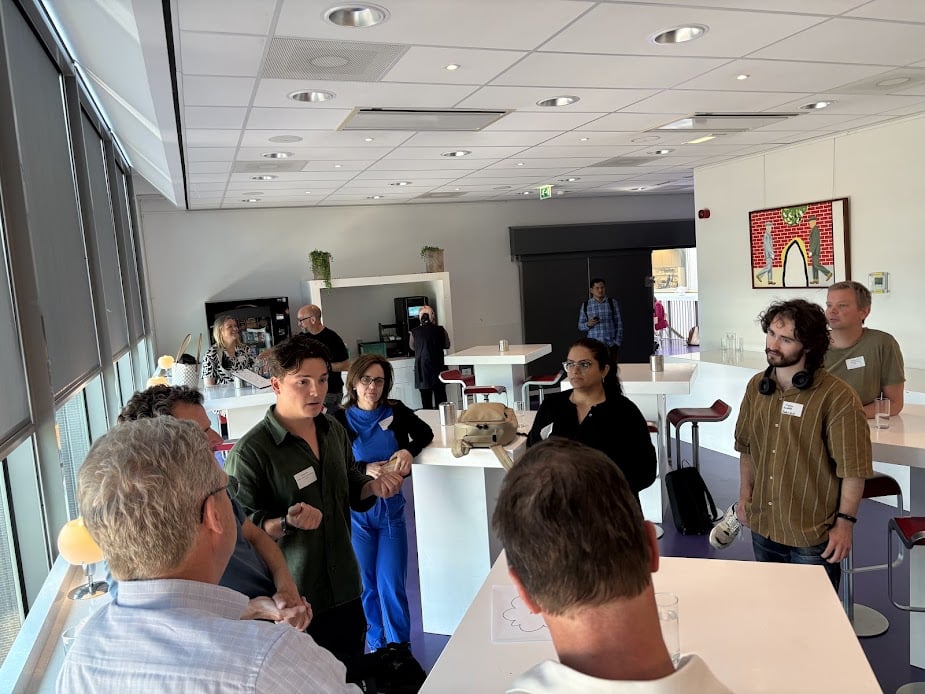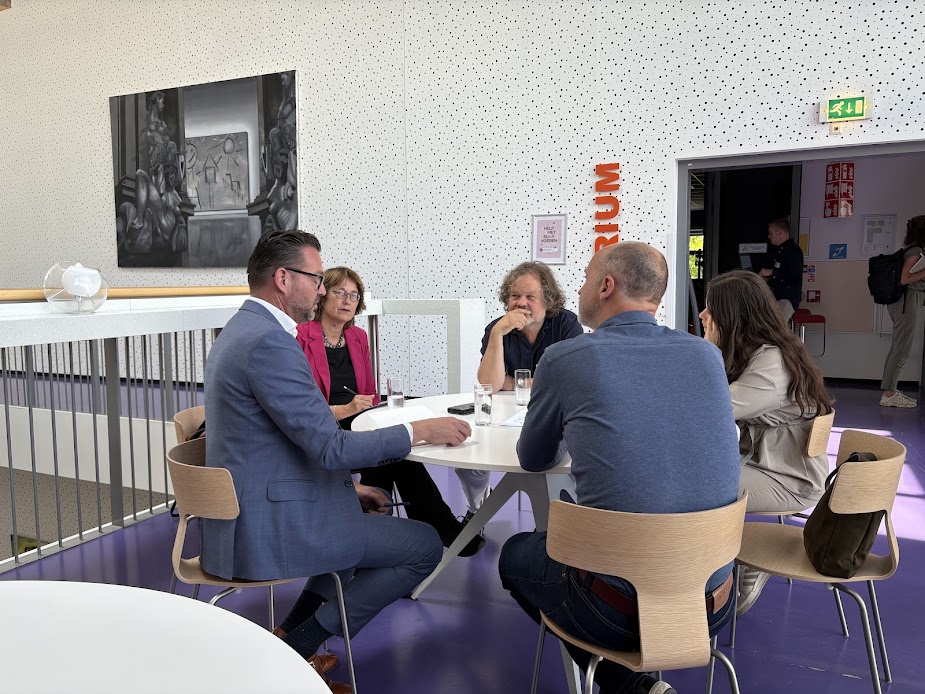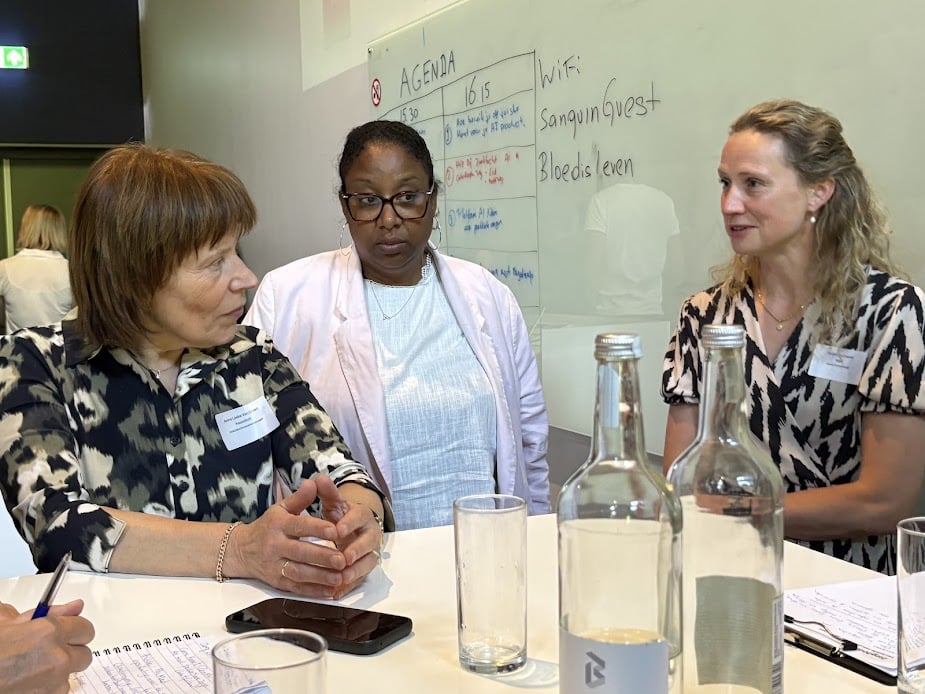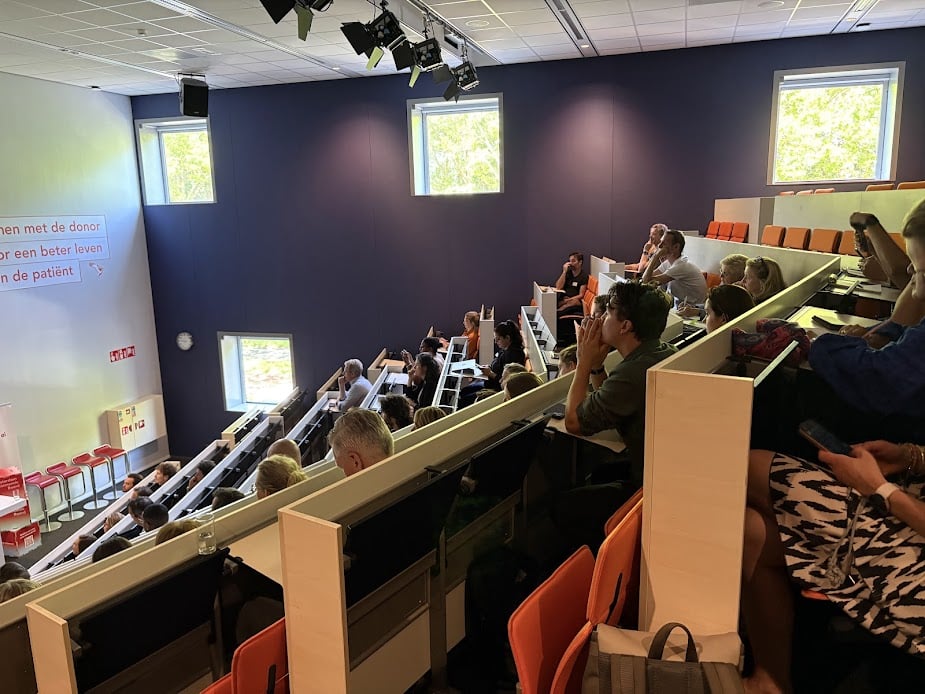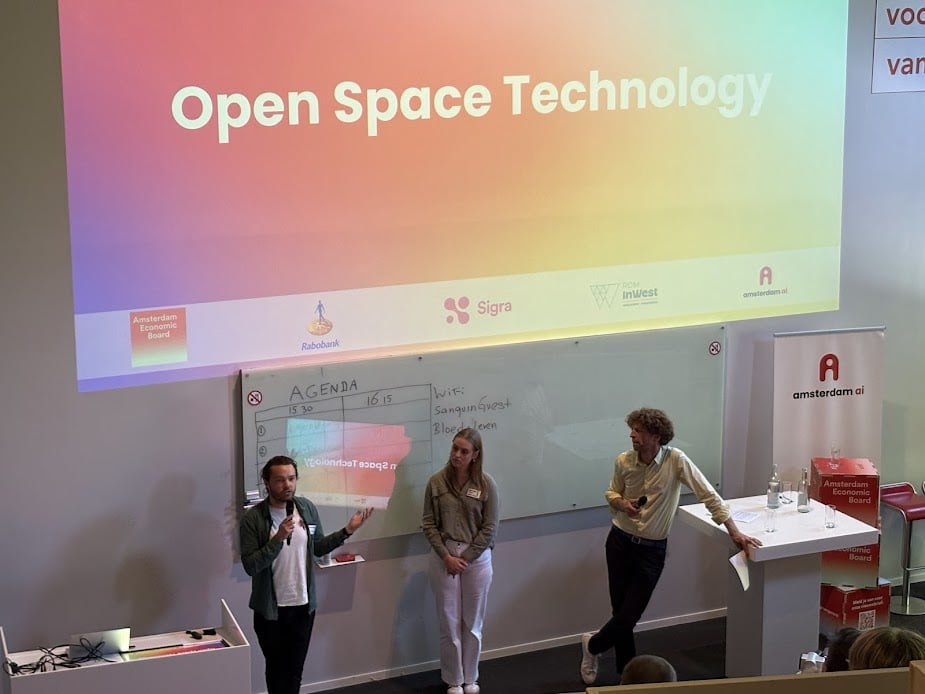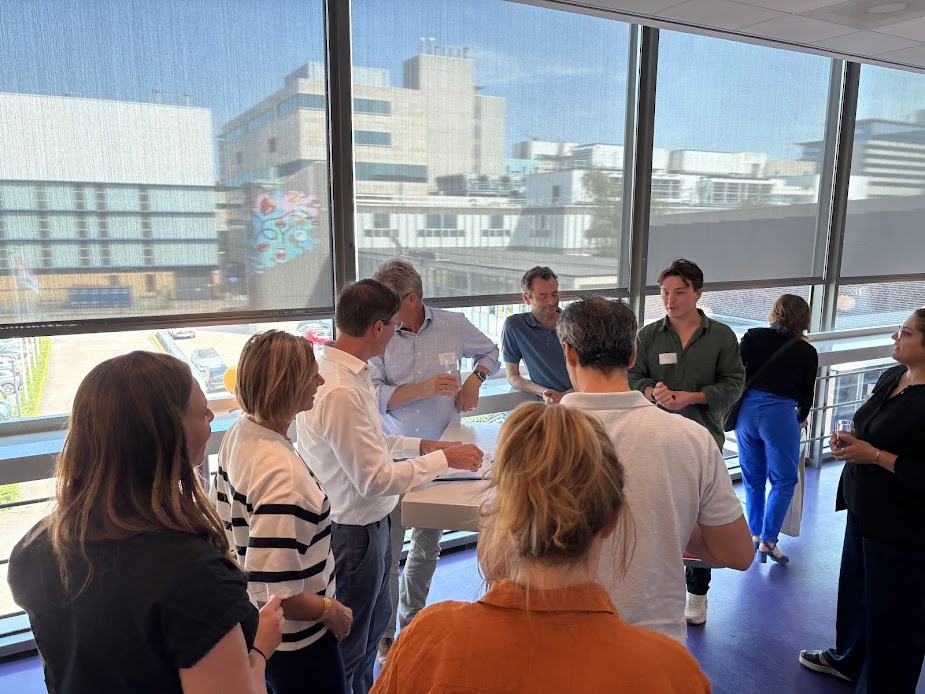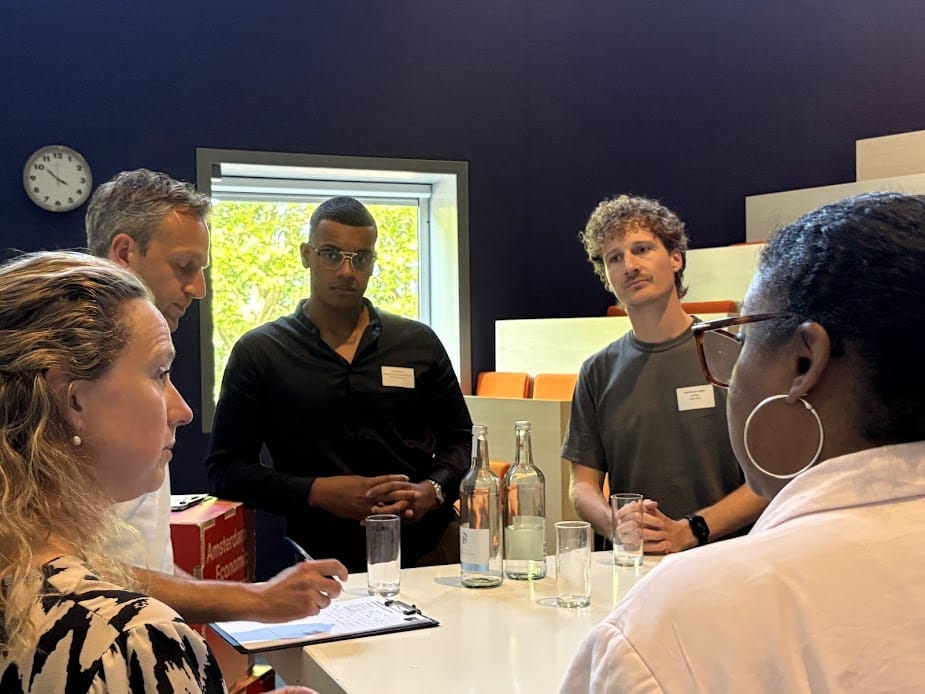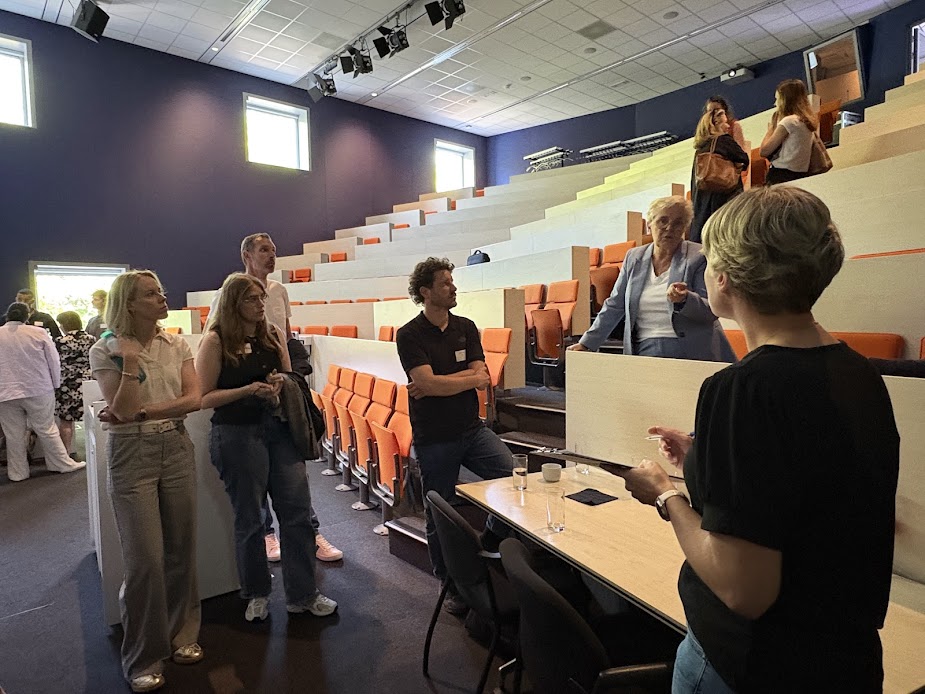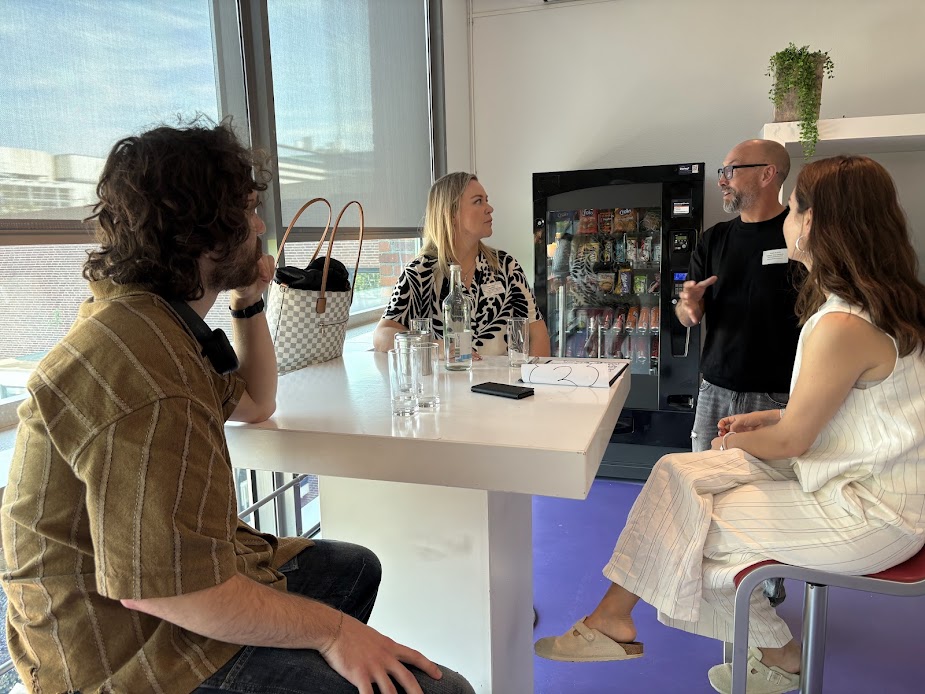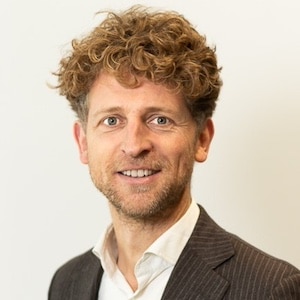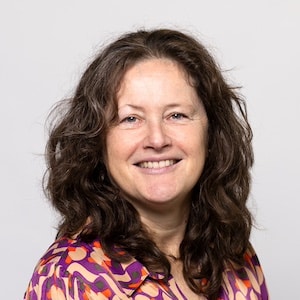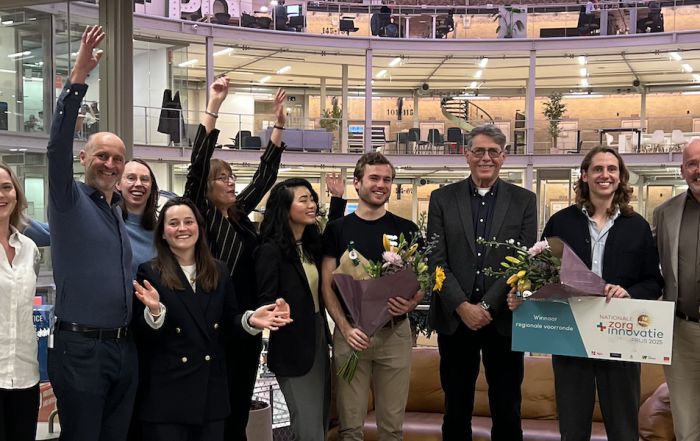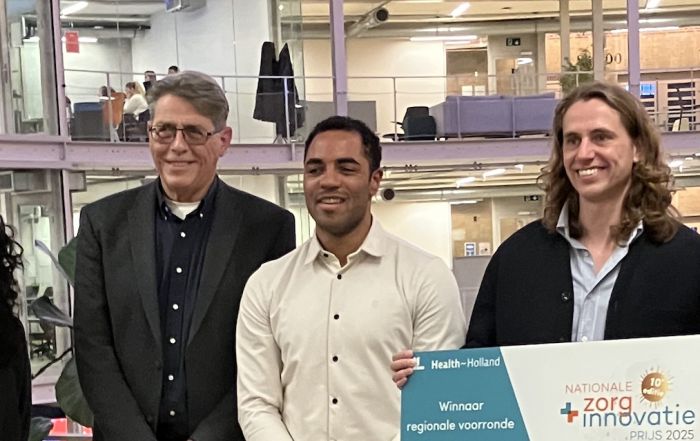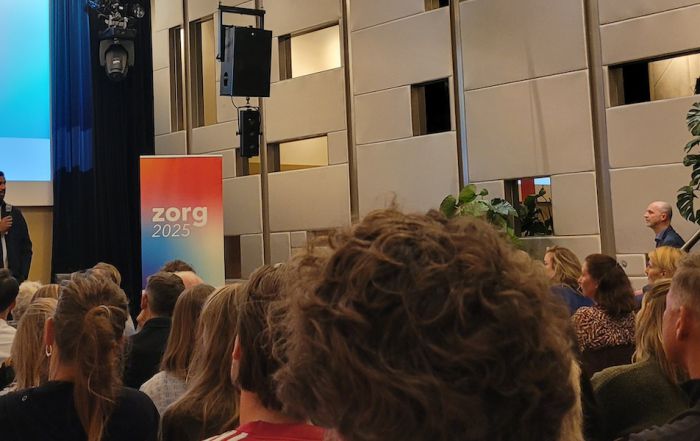AI in healthcare: from promise to practice
What AI applications are we already deploying for healthcare and wellbeing? What will it take to really get AI working in healthcare, implement it more widely, start pilots, and most importantly, upscale?
The expectations of artificial intelligence in healthcare are high. Also to cope with the increasing staff shortage and an aging population. AI tools are plentiful, and numerous startups are developing smart, new AI tools. From digital assistants to smart triage tools – applications with potential.
How do we ensure that these tools scale up from pilot to large-scale implementation in everyday healthcare practice? The Zorg2040 meeting ‘AI at the bedside – from promise to practice’ in the Health and Innovation District Amsterdam was dominated by these questions. Companies, researchers, healthcare workers and policy makers got to work together.
Swipe and click to enlarge. Text continues below the photos.
Bart Krull, coalition manager Innovative Region at the Amsterdam Economic Board, underscored the importance of innovation in healthcare. Innovation is essential to make healthcare future-proof, in times of staff shortages, aging and cost increases. The Zorg2040 coalition of AmsterdamAI, Sigra, Rabobank, ROM InWest and the Amsterdam Economic Board has set itself the goal of promoting innovation by bringing together players from various sectors at afternoons like this one, and giving inspiring examples a stage.
Better palliative care
Mathilde Tans, researcher at Amsterdam UMC told in her keynote about the research project Care-Heart. In it, she wants to develop an AI tool for better palliative care for patients with heart failure. One in 35 people have heart failure. The disease often progresses unpredictably. The research team aims to improve on care for patients in the end stage of this disease, by using AI to predict its progress. To best plan care in this crucial phase, and thus improve the quality of life in this final phase for the patient.
Hidde Hovenkamp, co-founder of our network partner Pacmed, talked about the challenge of scaling their company from startup with 1 market-ready product to a serious player with a wider range of CE-certified AI for healthcare. Pacmed was a winner of the regional Zorginnovatieprijs earlier this year.
Upscaling is not a given
Upscaling doesn’t naturally happen, as evidenced by the fact that only 2% of AI algorithms for the ICU eventually make it into practice. Pacmed launched an AI tool in 2014 providing insight into which patient can safely discharged from the ICU, in order to optimize ICU care capacity. The company now has a team of 30 FTEs. It is one of the first companies to scale up CE-certified medical AI in several Dutch hospitals. Their product optimises ICU workflows, eases the workload of caregivers and improves patient outcomes with real-time clinical intelligence.
Hovenkamp explains that development of the first product required a substantial investment. Follow-up modules could build on this, and were therefore faster to develop with less investment. But implementation of the software encountered barriers. Deploying new technology requires a different way of working. This behavioral change at the bedside is a crucial aspect in care transformation. Ultimately, it is important to have a vision of the hospital of the future in order to widely implement this different way of working. Another aspect is that a hospital cannot work with dozens of startups and point solutions, but needs an integrated system.
His lessons after 10 years of pioneering in healthcare:
- See AI as part of care transformation
- More agreement is needed on data privacy approach
- AI exposes data and recordkeeping flaws
- Standards are still under development for many systems
- Scalability infrastructure: decide who you want to scale for
- Trust is hard to gain and easy to lose
- Behavioural changes at the bedside are challenging
- The healthcare financing system provides very unique incentives in healthcare.
The second part of the afternoon started an open space session, led by Erik van Zwol of Amsterdam AI. Attendees were invited to contribute questions, which could be explored in working groups. This produced a wide range of topics that were discussed in two rounds:
- Sharing data and algorithms
- Collaborate on the role of data in managing inflow/throughput in disability care.
- Combining AI Agents into a solution
- Prevention and AI
- Continuing to internationally share knowledge safely in a changing global world
- How do you reach the right customer for your AI product?
- Help with search AI in disability care (ECD, Night Care)
- Platform AI Amsterdam for practical questions
- How to deal with negative stakeholders?
Read the Open Space minutes.
Next Zorg2040 meeting
On 7 October, there will be another Zorg2040 meeting at Café Restaurant Dauphine. This time it will be on the topic of femhealth/ femtech.
The Zorg2040 coalition of Amsterdam AI, Rabobank, ROM InWest, Sigra and Amsterdam Economic Board organises three meetups each year. These are aimed at bringing together healthcare innovators, businesses, researchers and knowledge institutions in the field of health and prevention.
Interested in partnering with us?
Check out the partners with whom we are making an impact on the Amsterdam region.
And read more about why you too should want to become a partner in our network. Relationship Manager Marjan Schrama is happy to tell you more.
7 July 2025
Read more about
Contact us
Want to keep up to date?
Get the best regional news and events (in Dutch) via the Board Update newsletter
Share this news
Want to keep informed?
Follow us daily on LinkedIn and sign up for the Board Update newsletter.
Read more
- Focusing more on women in health care innovation and research will have ...
- What is the Amsterdam Metropolitan Area’s position on critical raw materials? ...
- Preparations for the National Zorginnovatieprijs 2026 by Zorginnovatie.nl are underway, and registration ...

